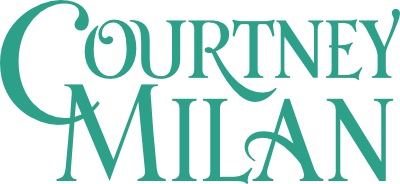I just finished looking through the final copy of my October release, a novella entitled “This Wicked Gift.” It’s a Christmas story, and so very occasionally, one of the characters will wish another a merry Christmas.
Those two words–used twice, I think, in the novella–gave me a lot of grief. My thinking went like this.
- As many of you know, British people today do not wish each other a “merry” Christmas. They say, “happy Christmas” instead. You see this formulation in a thousand different Christmas novellas. It’s always “happy Christmas” instead of “merry Christmas.” One of those across-the-pond things. So everyone is doing it.
- But it’s wrong. You see, back in 1822, British people actually wished each other a “merry Christmas,” too. It’s just that during the latter part of Victoria’s reign, people associated “merriness” with “drunkenness” and so the staid society decided to make it clear that they wanted your Christmas to be filled with happiness, not hangovers.  Thus, the transition to a “merry” Christmas instead. That’s why, if you read Charles Dickens’s A Christmas Carol, you’ll see all the characters wishing each other merry Christmases–not happy ones.
- Brit-picking is thus in substantial tension with historical accuracy. Which one wins out?
I decided to go for historical accuracy. But I did so, knowing I would probably get more mails saying, “Hey, British people don’t say ‘merry Christmas’!” then I would get mails saying, “Actually, in 1822 British people didn’t use ‘happy Christmas’!”
But the whole thing made me question: Is the reason I strive for historical accuracy as an author just so I can avoid criticism? Do I do it because it’s the right thing to do? Or do I do it because my goal is to transport the reader to another time as best I can, and inaccuracies jar the reader back into the present?

I find it hard to believe that any readers would email an author over something like that (okay, I believe it happens, but it seems rather silly). I like historical accuracy insomuch as it’s interwoven into the story so that I neither know nor care that it’s there. I also don’t mind historical inaccuracies under the same premise: if I don’t know or care, then make up anything you want.
In all honesty, the love stories of the historicals I read and enjoy are often so highly improbable that it doesn’t make sense to me. We’ll forgive there being 3,000 dukes in England, female spies running left and right, and mutual orgasms every damn time the hero and heroine have sex, but we get mad when someone says Happy Christmas?
Tamara,
I think it’s a different set of people. 🙂 There are some people who are high sticklers, who get unhappy about tiny little things like an anachronistic word. There are some people who do not. As an author, I’d like to please as many of them as possible.
I can assure you, there *are* people who take authors to task for missing historical details. And I really do try to make sure everything is as close to right as I can make it–and not because people are going to e-mail me and complain, but because it’s a matter of personal pride. 🙂
Having spent the last five Christmases in London, “Merry Christmas” is much used currently in the UK, at least in the city. Here’s a UK Christmas card site, in which Merry appears as often as Happy, if not more: http://www.charitycards.co.uk/shop/cards/christmas/single-cards
Here’s the 2007 Tesco Christmas ad (think UK WalMart, although technically Asda is the UK WalMart – anyway, digression) in which the Spice Girls shop in a store full of Merry Christmas banners and use a voice changer to wish “Merry Christmas” http://www.youtube.com/watch?v=WRGZ30-KfIs
Marks & Spencer end their 2008 Christmas ad with “Merry Christmas.” http://www.youtube.com/watch?v=eufQuF5zbKs&feature=related
So the nitpickers would be doubly wrong – Merry Christmas is not verboten in the UK even today!
Thank you, Chandra! That is really good to know. I got that comment from someone who had lived in England for a few years and just wanted me to know. So it is nice to know that people won’t shun me on either side of the pond anyway.
I had just taken that person’s word for it, but it’s nice to hear your correction. Thanks!
Growing up on books set in Britain, it actually took me aback when I first came to the UK: “No, no, I say ‘Merry!’ You only say ‘Happy!'” They just shrugged at me.
What you don’t hear often is “Season’s Greetings.” They (well, at least those Brits I know) feel that it is one of the those overly PC Americanisms. And I’ve listened to more than one rant on the radio and TV about keeping Christmas, well, Christmas and not letting “holiday” creep in ala the States.
But getting back to your questions: I appreciate a well-researched book, and appreciate even more the authors who put in the work even on details. Nothing makes me throw a book against the wall harder than fudged settings or events (unless there is an author’s note acknowledging the changes and why). And if someone does complain, at least you can cite sources!